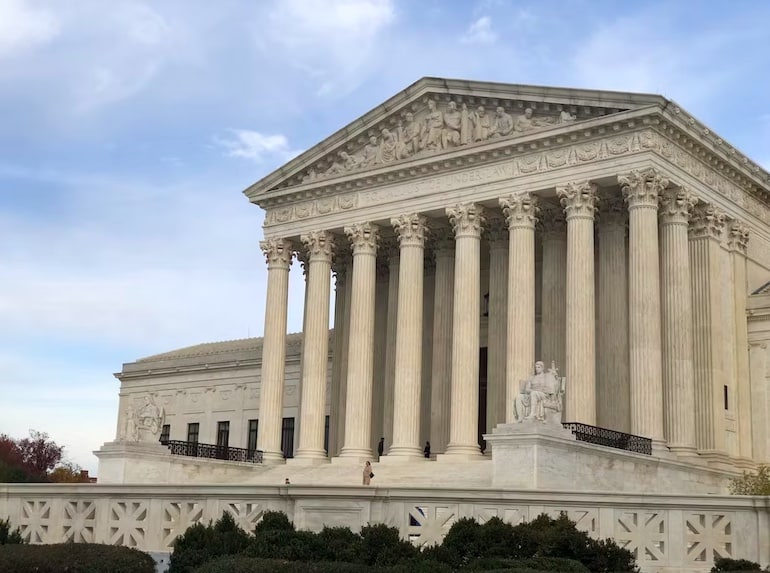The Supreme Court Thursday barred affirmative action both for private and public colleges in the U.S. in their admissions decisions.
The Court ruled in two cases, Students for Fair Admissions v President and Fellows of Harvard College and Students for Fair Admissions v University of North Carolina. Both involved challenges to how the schools sometimes factor race into the admissions process.
The six conservatives in the Court’s supermajority—Chief Justice John Roberts and associate justices Clarence Thomas, Neil Gorsuch, Brett Kavanaugh, Amy Coney Barrett—voted for the decision to block race as a factor in college admissions, while the three liberal Justices—Elena Kagan, Sonia Sotomayor and Ketanji Brown Jackson—dissented.
The Court had heard arguments in both cases on October 31.
In the Harvard case, the Students for Fair Admissions sued the Ivy League college alleging that the process violates Title VI of the Civil Rights Act of 1964 by discriminating against Asian American applicants in favor of white applicants.
Harvard had admitted to using race as one of many factors in its admissions process but argued that its process was in line with the requirements for race-based admissions outlined in the Supreme Court’s 2003 decision in Grutter v Bollinger.
In the North Carolina case, Students for Fair Admissions sued UNC alleging that the school’s process violates the 14th Amendment by using race as a factor in admissions.
UNC had also cited Grutter v Bollinger in its defense. That 2003 case stemmed from a 1997 application to the University of Michigan Law School by white state resident Barbara Grutter. She had been denied admission despite a 3.8 undergraduate GPA and an LSAT score of 161.
At the time, the Supreme Court had concluded in a 5-4 decision, delivered by Justice Sandra Day O’Connor, that the Equal Protection Clause of the 14th amendment to the Constitution did not prohibit the Law School’s narrowly tailored use of race in admissions to further a compelling interest in obtaining the educational benefits that flow from a diverse student body.
On Thursday, in an opinion written by Chief Justice Roberts, the Supreme Court ruled that both schools’ affirmative action programs violate the Equal Protection Clause and are therefore unlawful.
Roberts’ opinion did make one exception in affirmative action considerations: military academies.
“No military academy is a party to these cases, however, and none of the courts below addressed the propriety of race based admissions systems in that context” Roberts wrote. “This opinion does not address the issue, in light of the potentially distinct interests that military academies may present.”


